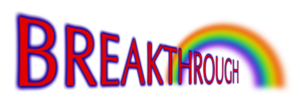Jenny, you have helped me gain a much clearer picture of who I am, and what I want and need from life.With love C.L. Brighton.
What is CBT, or Cognitive Behavioural Therapy?
CBT, or Cognitive Behavioural Therapy teaches us how to understand the relationship between incoming thoughts, feelings, and behaviours. When we can separate our thoughts and our feelings from our behaviours, and acknowledging them, we can allow them to change.
How we think about events has a powerful influence on how we feel about them, and then what we do about them. CBT focuses to improve the “here and now” and moving forward, rather than emphasising the causes of distress or symptoms of the past.
For example: if you think a dog may bite you, you feel scared, this then has an effect on what we do (behaviour), so you may cross the road to avoid the dog.
Your issue probably has absolutely nothing to do with dogs, this was just an example of course. It could be that you’ve had a bad relationship in your past and can no longer trust people and this is stopping you from forming new bonds. Perhaps you’ve lost someone significant in your life and feel insecure, and worried the same thing may happen again.
CBT has become a clinically and research proven breakthrough in mental health care.
Hundreds of studies by research psychologists and pyschiatrists make it clear why CBT has become a preferred treatment for conditions such as:
- Stress and related issues..
- PTSD (Post Traumatic Stress Disorder)
- Trauma, Abuse, ‘Obsessive Compulsive Disorder’ (OCD)
- Personality disorders, Schizophrenia
- Depression, Sadness, Hurt, Guilt, Shame, Anger, Fear
- Low self esteem
- Insomnia
- Anxiety and panic
- Eating disorders
- Sports performance anxieties
- Fear of Public Speaking
- Phobias
- Addictions
- Children’s Issues
How does CBT work?
It isn’t the situation itself which determines how we feel, but the meaning we attach to the situation
CBT helps to make sense of overwhelming problems by breaking them down into smaller, manageable pieces, making them easier to understand and find solutions.
- Situations or problematic events are either followed or instigated by
- Thoughts
- Emotions/physical symptoms
- Behaviours
CBT is an active therapy. It helps to break vicious circles of thought, feelings and behaviour, allowing us to see all parts of the sequence clearly and change them, thereby enabling us to regain self-empowerment to tackle and resolve our problems.
In many ways CBT resembles life coaching. With guidance you will share in setting realistic goals and decide which techniques work the best for you individually. Time limited, structured and focused: CBT is usually fairly brief, providing clear structure and focus, sticking to the point, and also changing course whenever necessary.
Working with you intuitively, I also draw on a unique blend of life-changing skills such as EFT, NLP, Transformational Life Coaching, Strategic Intervention Coaching, to facilitate change for you as an individual to transform your life.
I work with clients pro-actively to resolve their issues in a calm atmosphere either face to face in Brighton or via Zoom or Skype. A flexible ongoing plan is worked out to reflect your needs.
Please see many happy clients testimonials here
Past -vs- present and future:
Whilst focusing on the past is taken into account, CBT is more present-centred and forward looking than some other more traditional techniques and I integrate CBT into coaching sessions whenever appropriate.
Levers for change
- By challenging our unwelcome thoughts, beliefs, mental pictures and internal chatter we are able to move forward… this is the cognitive aspect of CBT.
- CBT is about: helping a person greet the challenges and opportunities in their life with a clear and calm mind… and then taking actions towards desirable results.”

